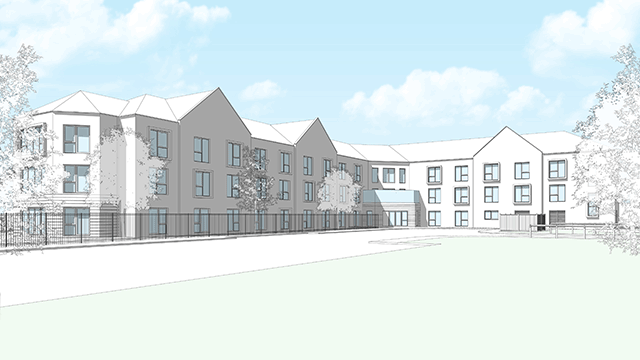The leaseholders of an uninhabitable block of flats in Manchester have been left almost £4m out of pocket following a Court of Appeal ruling.
The leaseholders of New Lawrence House in Hulme, Manchester, have been involved in long and protracted litigation over development, which is less than 15 years old but uninhabitable due to serious defects.
This part of the dispute relates to buildings guarantee insurance, or PPR, bought from Zurich at the time they bought their leases between 2007 and 2010.
The leaseholders sued the insurer over the terms of the policy, and in 2019 the Court of Appeal backed them and awarded them almost £10m, plus most of their legal costs and interest. In the meantime, Zurich had transferred the part of its insurance business that was responsible for the policy to another business. That business paid out the £10m and then went into administration without paying the interests and legal costs.
According to court documents, the shortfall is almost £4m.
The leaseholder tried to claim that shortfall from the Prudential Regulation Authority’s Financial Compensation Scheme. However, in 2021 the PRA ruled that while it would be liable for payments under the policy, its compensation scheme did not cover costs and interest.
The leaseholders challenged this in the High Court. The case proceeded to the Court of Appeal, and in a ruling handed down this week, a three-judge panel ruled that the PRA’s original decision was correct.
The judges hearing the case said in their judgment that they had sympathy for the leaseholders.
Lady Justice Falk said: “However unfair it may appear… we have no discretion to award compensation. Instead, we are obliged to apply apply the rules to the facts.”
She said, in her view, the rules of the compensation scheme couldn’t be extended to include interest and legal costs.
Lady Justice Andrews, who also heard the case, said in the ruling: “I also wish to associate myself expressly with my Lady’s concluding remarks and with the sympathy she has expressed for the policyholders, who are and were entirely blameless for the predicament in which they have found themselves.
“I appreciate, of course, that the PRA was required to fix an appropriate level of cover under the scheme with an eye on the costs of maintaining the scheme, which is funded by a levy on insurers and therefore, indirectly, by insurance premiums. The scheme was never designed to provide a full indemnity.
“I am also conscious the scheme is fundamentally aimed at the position where the insurer cannot pay, as opposed to where it appears able to afford to pay but refuses cover.”
She said the ruling might discourage future litigation.
“The upshot of confining the ambit of the scheme to what is recoverable under the policy may well be that, in future, those in a similar position to these policyholders will be loath to take the financial risk of pursuing recalcitrant insurers through the courts, as they may spend more in costs than they ultimately recover if the insurer (or its successor) subsequently runs into financial difficulty.”
She added: “We cannot distort the interpretation of the rules of the scheme in order to cater for hard cases.”
The King on the application of Manchikalapati and others v The Financial Services Compensation Scheme
Court of Appeal (Popplewell LJ, Andrews LJ, Falk LJ) 5 September 2023







